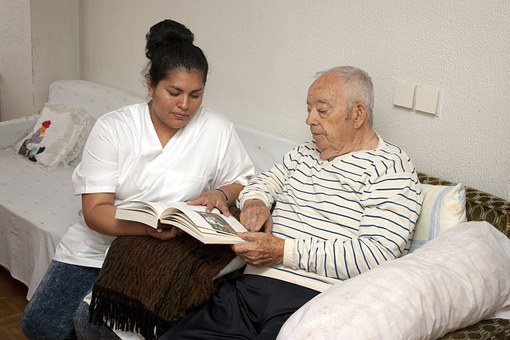This press release was issued by the National Hispanic Council on Aging (NHCOA) on September 16, 2017.

The Alzheimer’s Association and the National Hispanic Council on Aging (NHCOA) announced today a nationwide partnership aimed at increasing Alzheimer’s disease awareness and education in Latino communities across the country.
The partnership will develop a network of health promoters to deliver Alzheimer’s education in Latino communities, while connecting people living with the disease and their caregivers to free resources and support services offered through the Alzheimer’s Association. The health promoters will help bridge cultural and linguistic barriers that have slowed access to Alzheimer’s information and resources in these communities previously.
“The Alzheimer’s Association is excited to be working with NHCOA,” said Marshawn Brown, Director, Diversity & Inclusion for the Alzheimer’s Association. “The partnership will help us reach a vulnerable population with needed resources and information to help individuals living with the disease and their families better navigate the challenges of Alzheimer’s.”
Currently there are 5.5 million Americans living with Alzheimer’s disease. While more non-Hispanic whites are living with the disease, Hispanics are at greater risk – about one and one-half times more likely than older whites – to have Alzheimer’s or another dementia.
The number of Hispanics living with Alzheimer’s is expected rise in coming years. The U.S. Hispanic older adult population is the fastest-growing segment of the baby boom generation. Today, U.S. Hispanics make up about 8 percent of the older adult population, but by 2050, they will make up nearly 20 percent of this population.
“It’s really critical that we reach Latino communities earlier and more consistently with Alzheimer’s information and resources,” said Dr. Yanira Cruz, President and CEO of the National Hispanic Council on Aging. “Many Latinos are getting diagnosed much later in the disease, reducing their access to treatments that may provide some relief of symptoms and help maintain independence longer. In addition, these delays in diagnosis are reducing the opportunity for these individuals to make important legal, financial and care plans while they are still capable.”
Core to the partnership announced today, the Alzheimer’s Association and NHCOA will work together to deliver the following:
- Co-develop materials and training tools to educate the health promoters recruited to deliver Alzheimer’s education.
- Co-develop materials and training tools to assist Alzheimer’s Association chapters in recruiting, training and activating health promoters in Latino communities nationwide.
- Conduct targeted recruitment efforts of health promoters in key markets where NHCOA has strong, well established relationships.
Development of materials will begin shortly The Alzheimer’s Association and NHCOA aim to begin engaging promoters for work in targeted communities in early 2018.
About the Alzheimer’s Association:
The Alzheimer’s Association isthe world’sleading voluntaryhealth organization in Alzheimer’scare, supportand research. Our missionistoeliminate Alzheimer’s diseasethrough the advancementofresearch; toprovide and enhance careand supportforallaffected;andtoreduce theriskofdementia through the promotion ofbrain health. Ourvision isa world withoutAlzheimer’s. Formore information, visit www.alz.org.
About the National Hispanic Council on Aging:
The National Hispanic Council on Aging (NHCOA) is the leading national organization working to improve the lives of Hispanic older adults, their families and their caregivers. Headquartered in Washington, DC, NHCOA has been a strong voice dedicated to promoting, educating, and advocating for research, policy, and practice in the areas of economic security, health, and housing for more than 30 years. For more information, visit www.nhcoa.org.
The opinions expressed in this article are those of the author and do not necessarily reflect those of the Diverse Elders Coalition.

